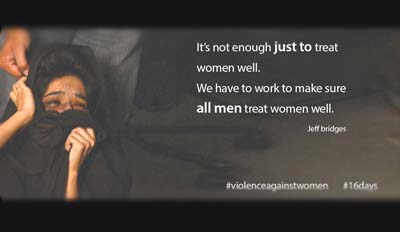Updates from Sindh Labour Conference held on 12 and 13 Aug 2017
By FT Correspondent
National Labor Council in collaboration with Sindh Labour Solidarity Committee and Pakistan Institute of Labour Education and Research (PILER) organized two-day Sindh Labor Conference this weekend.
On the first day attendants made many stirring speeches and reflected over the past and present situation of labor rights in the country.
According to Senate Chairman Mian Raza Rabbani our country may have gotten independence from the British in 1947 but then what followed makes abundantly clear that the Britishers (Gora Sahib) were replaced by Kala Sahib (bureaucracy), feudal lords and landlords, who continue violating rights of workers and peasants even today.
Questioning the concept of independence and sovereignty in our country Senator Rabbani spoke extensively over continued colonial fashion muddled democracy bureaucrats, feudal lords, and industrialists serve us here. To achieve their goal of maintaining control of resources they have collaborated to keep poor under their control through all means.
Like Pakistan’s capitalists have aligned with the international capitalists and have managed to ban or discourage student and trade unions. Many attempts have been made to revive student unions but representatives of establishment and pro dictatorship peddlers found mostly among the middle class paint a gloomy picture of lawlessness and thwart anti-state or anti-government movement’s or just room for criticism.
The movements against Ayub succeeded because of of coffee culture, said Senate chairman. Poets like Jalib, Faiz and Jaun Elia presented revolutionary poetry to reflect over oppression and suppression of people through various mediums. “Who is Faiz or Jalib from the new generation,” Senator Rabbani asked. We live in a country where no active counter narrative against terrorism is being worked on but Jamaat ud Dawa gets to enter elections this year by creating a political party.
Our electoral campaigns are as corporatized as they are in USA since NA or Senate seat here one needs crores for election campaigns. No wonder labor dies here in factory fires, but the industrialists get away with it as soon as the media attention fades in a week.
National Commission for Human Rights (NCHR) Chairman Justice (retd) Ali Nawaz Chowhan shared good news on this occasion that the commission was processing a report on bonded labour in Pakistan, in which legislation to end bonded labour would be suggested. He assured that the NCHR was committed to implement all the International Labour Organization conventions, which Pakistan had already ratified. He welcomed the Sindh government’s announcement to hold provincial tripartite labour conference in September and asked the workers to send their complaints to the commission.
Supreme Court Bar Association President Rasheed A Razvi expressed his concern over the problems created by that the National Industrial Relations Commission (NIRC) and labour courts for trade unions for ineffective rulings and hiring retired judges. Thousands of trade union cases are pending in NIRC, Karachi because of it. Independent labor judiciary is the need of the hour he said.
All Pakistan Workers Confederation General Secretary Khurshid Ahmed said that there were 72 labour laws, but they were not implemented properly. He regretted that pension amount under EOBI was Rs 5,200 which is paltry for the families of workers and underlined the need for provision of free legal aid to workers. He also suggested that a judge should be appointed in the high court to exclusively hear labour issues.
PILER’s Executive Director Karamat Ali also questioned ideas of independence by reflecting on the present rulers who are descendants of those who sought properties from the British for their loyalties to imperial government.
He added that Pakistan is the only country which was not decolonized in 1947. Unfortunately, the labour rights available before 1947 are not available after the independence. Before the partition, trade union rights were available for all employees except for the uniformed employees.
Karamat Ali said not more than 5 percent workers are currently registered with labour supporting institutions like EOBI and Social Security Institutions but in the Indian Act, 1935 there were reserved seats for trade unions.








